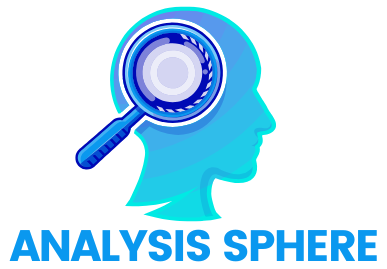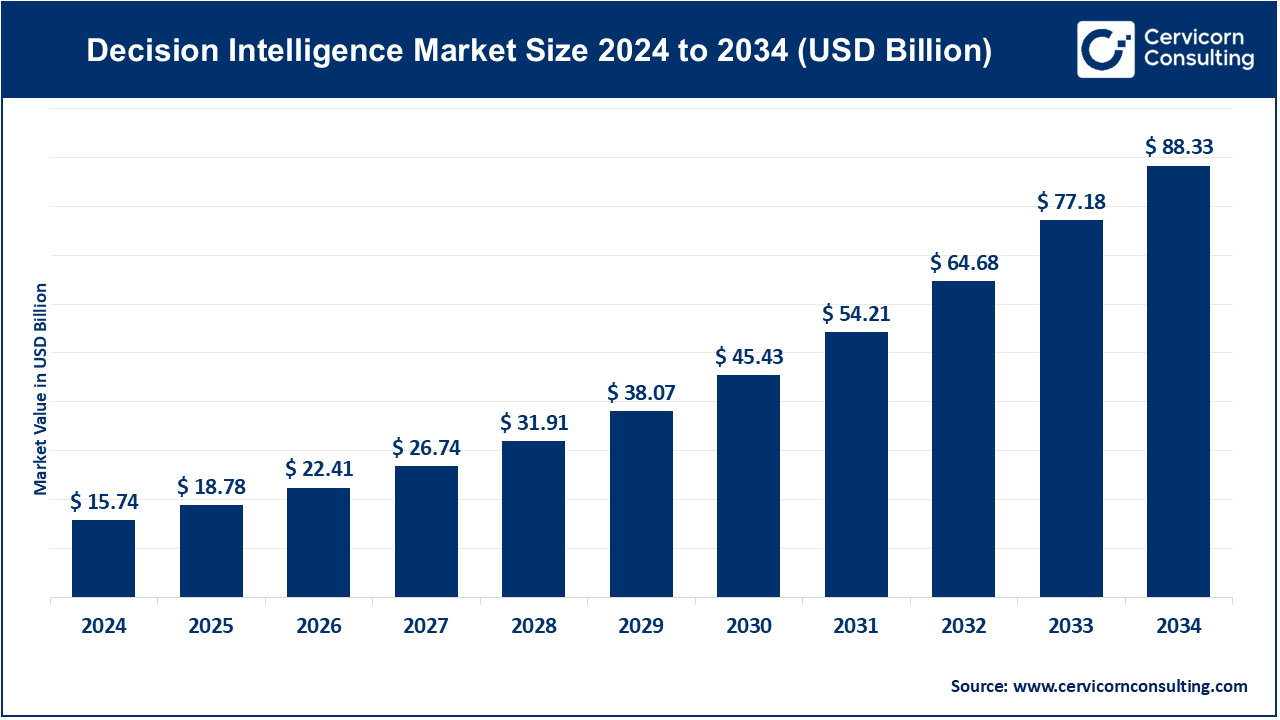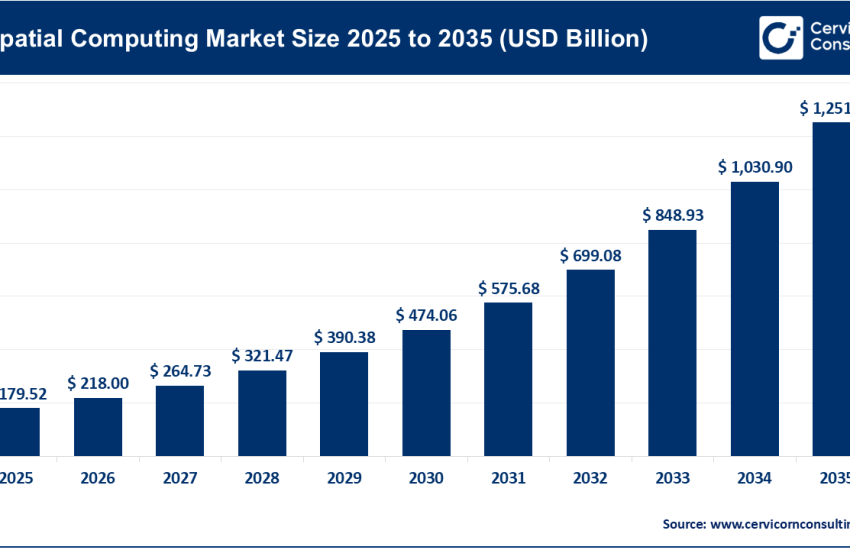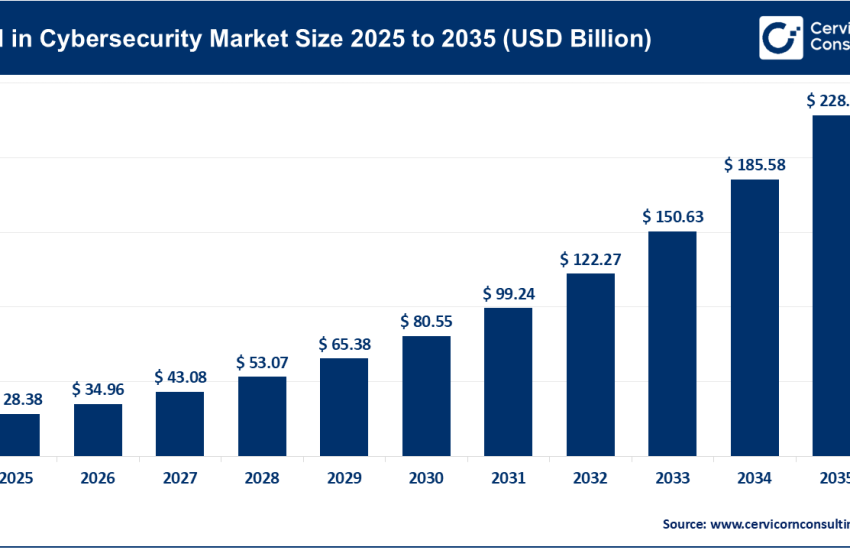Decision Intelligence Market: Growth, Key Players, and Future Trends (2025-2034)
Decision Intelligence Market Overview
What is the Decision Intelligence Market?
The Decision Intelligence market revolves around utilizing artificial intelligence, machine learning, and data analytics to enhance decision-making processes within an organization. Essentially, it’s a data-driven decision-making process that helps businesses make better, smarter, and more efficient decisions. This technology is designed to support human decision-making by providing better tools to understand and predict outcomes, rather than simply automating the entire process.
At its core, decision intelligence integrates technologies like machine learning, AI algorithms, data mining, and predictive analytics to help businesses understand patterns in data, evaluate various decision-making models, and predict potential outcomes. The result is improved efficiency, better strategies, and more informed decisions across industries.
Why is the Decision Intelligence Market Important?
As organizations face an increasing amount of data, making timely and informed decisions has never been more critical. The traditional models of decision-making are often slow, limited in scope, or reliant on outdated methodologies. Decision intelligence addresses these gaps by providing organizations with an innovative approach to analyze complex data and make actionable decisions quickly.
Here are some of the primary reasons why the decision intelligence market is crucial:
- Enhanced Decision-Making: Decision intelligence enables businesses to combine human expertise with AI-driven insights. This fusion helps improve decision accuracy, reduce human biases, and provides a solid foundation for real-time decisions.
- Increased Operational Efficiency: By automating routine decision-making processes and using AI algorithms to optimize choices, businesses can cut down on inefficiencies and resource waste.
- Scalability: Decision intelligence solutions can scale quickly to accommodate growing datasets, which is essential for businesses that deal with large amounts of data daily.
- Predictive and Prescriptive Analytics: The decision intelligence market’s ability to forecast future trends based on past data and prescribe optimal actions for achieving desired outcomes is incredibly valuable for decision-makers in all industries.
- Competitive Advantage: In today’s fast-paced business environment, staying ahead of competitors is crucial. Companies that integrate decision intelligence into their operations gain a competitive edge by making faster, more informed decisions, driving innovation, and optimizing business strategies.
Get a Free Sample: https://www.cervicornconsulting.com/sample/2466
Key Players in the Decision Intelligence Market
Several companies are leading the charge in shaping the Decision Intelligence Market by providing state-of-the-art solutions that leverage AI, ML, and other data technologies. These companies help organizations make informed decisions that are backed by comprehensive data analysis and insights.
Here are some of the key players:
- Specialization: Google is a pioneer in AI and machine learning and leverages its cloud platform to offer decision intelligence solutions. Their AI tools, such as Google Cloud AI and TensorFlow, allow businesses to access advanced data analytics to enhance their decision-making capabilities.
- Key Focus Areas: Google focuses on AI-powered decision-making for businesses in various sectors, including finance, healthcare, retail, and logistics.
- 2023 Revenue: Approximately $285 billion (Total Revenue for Alphabet Inc., parent company of Google)
- Global Presence: Google operates globally with a significant presence in North America, Europe, and Asia.
IBM
- Specialization: IBM offers a suite of AI and data analytics tools, including its IBM Watson platform, which enables organizations to apply decision intelligence for automated decision-making, risk management, and optimization of business operations.
- Key Focus Areas: IBM specializes in AI and data analytics for financial institutions, healthcare, government agencies, and enterprise software solutions.
- 2023 Revenue: Approx. $75 billion
- Global Presence: IBM operates in over 170 countries worldwide.
Oracle
- Specialization: Oracle provides a comprehensive set of tools and services that leverage data analytics and machine learning to empower decision-making in real-time. Its cloud-based solutions are particularly popular in business resource planning (ERP), customer relationship management (CRM), and supply chain management.
- Key Focus Areas: Oracle focuses on cloud-based decision intelligence tools for enterprise businesses, specifically in the finance, manufacturing, and retail industries.
- 2023 Revenue: Approx. $55 billion
- Global Presence: Oracle has a strong global presence with offices and data centers across North America, Europe, and Asia.
Microsoft
- Specialization: Microsoft provides decision intelligence capabilities through its Azure cloud platform, including Azure Machine Learning, which helps organizations create predictive models and optimize decision-making processes.
- Key Focus Areas: Microsoft’s key focus is on cloud-based decision intelligence and AI services for enterprises, especially in industries such as healthcare, finance, and manufacturing.
- 2023 Revenue: Approx. $211 billion
- Global Presence: Microsoft operates globally and has an extensive network of Azure data centers across the world.
Clarifai
- Specialization: Clarifai focuses on using AI to process and analyze large datasets to improve decision-making in industries such as retail, security, and manufacturing. Their platform specializes in computer vision, natural language processing, and automated machine learning.
- Key Focus Areas: Clarifai’s key focus is on AI-driven decision intelligence in industries requiring image and video analysis, including security and retail.
- 2023 Revenue: Approx. $25 million
- Global Presence: Clarifai operates globally, with a particular focus in North America and Europe.
Leading Trends in the Decision Intelligence Market
As the market for decision intelligence continues to grow, several key trends are emerging that will significantly impact how businesses and governments leverage AI and data analytics to make decisions.
- Integration of Artificial Intelligence and Machine Learning: The increasing integration of AI and machine learning with decision-making systems is a major trend. These technologies help to automate decision-making and make predictions based on historical data, allowing businesses to act quickly and accurately.
- Cloud-Based Decision Intelligence Solutions: Cloud-based platforms are becoming the backbone of decision intelligence solutions. Companies are increasingly migrating to the cloud, where they can access vast computational resources and data storage for improved decision-making capabilities.
- Real-Time Analytics: Real-time decision intelligence tools are helping organizations make decisions faster by processing data instantly. With real-time analytics, businesses can predict and respond to market changes, customer behavior, and potential risks before they escalate.
- Increased Adoption in Healthcare: Healthcare organizations are leveraging decision intelligence to make critical decisions, improve patient outcomes, and reduce costs. The adoption of AI-driven diagnostics, personalized medicine, and decision support systems is growing rapidly.
- Focus on Data Privacy and Security: As data becomes central to decision intelligence, companies are investing more in data privacy and cybersecurity solutions to ensure compliance with global regulations like GDPR and CCPA. This is an essential trend as organizations handle increasingly sensitive data.
Regional Analysis
The Decision Intelligence Market is experiencing significant growth across different regions, driven by advancements in technology, the rise in data-driven decision-making, and the demand for smarter solutions. However, various regions are adopting these technologies at different paces.
North America:
North America is the dominant region for the decision intelligence market, mainly due to the presence of leading tech companies like IBM, Microsoft, and Google. Furthermore, the region’s advanced infrastructure, high-tech adoption, and strong AI and data analytics ecosystem have contributed to its growth.
Europe:
Europe is also experiencing significant growth, particularly in the finance, healthcare, and retail sectors. The region is supported by stringent government regulations on data privacy and security, which has accelerated the adoption of decision intelligence technologies.
Asia-Pacific:
The Asia-Pacific region is expected to experience the fastest growth in the coming years. Rapid technological advancements in countries like China, India, and Japan, coupled with the growing adoption of AI and cloud solutions, are fueling the expansion of the decision intelligence market in this region.
Latin America:
Although Latin America is a relatively smaller market for decision intelligence, increasing digitalization and the adoption of AI-driven technologies are expected to drive growth in this region.
Middle East & Africa:
The adoption of AI in the Middle East and Africa is still in its nascent stage, but government initiatives in countries like the UAE and Saudi Arabia to promote smart cities and data-driven decision-making are expected to boost the decision intelligence market.
Government Initiatives and Policies Shaping the Market
Governments worldwide are recognizing the potential of decision intelligence to drive innovation, improve business efficiency, and support national growth. Several initiatives and policies are helping shape the decision intelligence landscape:
- United States: The U.S. government has invested heavily in AI research and development through initiatives like the National AI Initiative Act, which promotes the use of AI in various sectors, including healthcare, defense, and finance.
- European Union: The EU has launched the AI Strategy for Europe, which focuses on fostering AI adoption across industries, ensuring ethical AI implementation, and providing frameworks for AI-based decision-making systems.
- China: The Chinese government has outlined ambitious plans to become a global leader in AI by 2030. This includes initiatives to integrate AI in business decision-making processes and enhance the country’s overall AI capabilities.
To Get Detailed Overview, Contact Us: https://www.cervicornconsulting.com/contact-us
Read Report:
Cloud Computing in Chemical Market: Growth, Innovation, Collaboration, and Cost Savings



